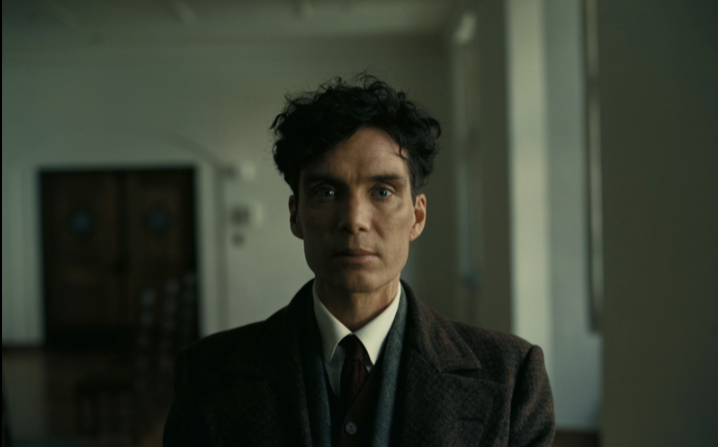
An empty art gallery, filled solely by the presence of a Picasso work. Seated Woman With Crossed Arms. Opposite of the cubist masterpiece stands a man with wild hair, his eyes piercing into the lens as he tries to understand the sight in front of him. It’s only for a moment, but the sheer concentration these eyes bore into the artwork give a sense of genius and intelligence; but like all greats, this aptitude is eclipsed by insanity. A singular look in a singular frame can say so much about the life of J. Robert Oppenheimer, the American physicist otherwise known as the father of the atomic bomb. The trials and tribulations of the scientist have been brought to light in Christopher Nolan’s newest blockbuster Oppenheimer (2023). A three hour epic about the crux between morality and genius, Oppenheimer would not nearly be the successful biopic it is without its leading man, the full embodiment of the physicist himself; Cillian Murphy.
Cillian Murphy is an artist. A true master of his craft, Murphy approaches every performance with such criticality and focus. It’s been a long time coming for him to lead his own movie. Oppenheimer is an amalgamation of the range Murphy has as an actor. But beyond scope and emotion, physicality or mannerisms required to be a ‘good actor,’ what makes Murphy stand out is his genuine love he has for cinema. Each role he takes on is executed with care and admiration for his craft. His commitment to his role is as clear as day in Oppenheimer, but Murphy’s artistic intelligence stems back to the very start of his career. From small Irish movies to the massive Nolan blockbusters, Cillian Murphy’s career cannot be contained by one trope or status. Instead, his body of work demonstrates unadulterated passion for the film industry while embodying talent unlike any other actor of his time. The following movies simply scratch the surface of Murphy’s impressive career. They were essential to pushing his craft, but are no more important than his other bodies of work as well.
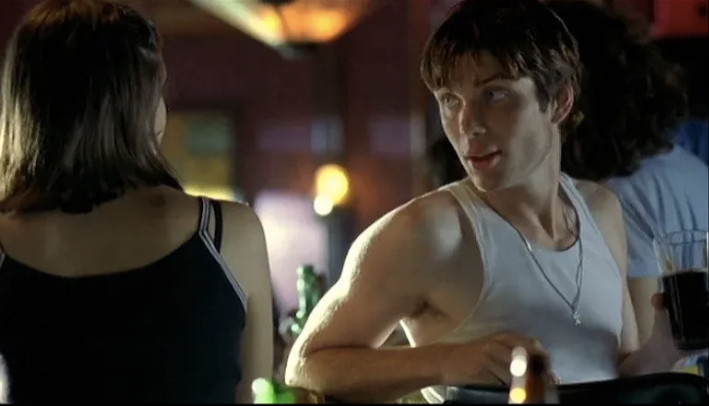
One of Murphy’s breakout roles in the cinema scene is in the 1999 coming-of-age film Sunburn. Variety’s Paul Power deemed him an “Irish unknown” that had a “coyness that will endure him to auds.” Indeed, that coyness is permeated through Cillian’s performance of Davin, a laidback young adult who travels to America, where a group of Dublin college students participate in the ‘work and travel program’ in Montauk, New York. Davin is desperate to leave Ireland, for it “is no place for people with aspirations.” While the film itself is a bit aimless, Murphy embodies mischief and excitement as Davin and his peers celebrate the fun of spontaneity on Long Island during the summer. Sunburn is a slice-of-life work that isn’t trying to say anything in particular; instead, it’s a fun, introspective look on Irish exchange students, and finding joy in an organic, natural light. Murphy’s mannerisms are charming without trying. Power claims his performance captures a “larger-than-life existence,” one that is put to the test time and time again. Davin is effortlessly cool; the characters, as well as the audience, are drawn to him. The movie’s celebration of adulthood is suggested through Murphy’s full commitment to the unhinged, carefree role.
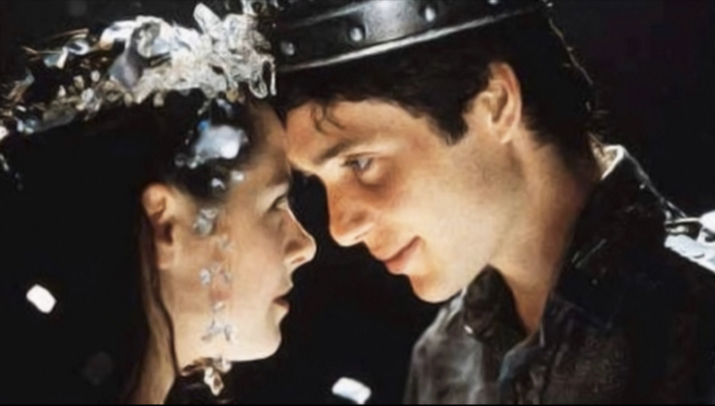
Another one of Murphy’s breakout roles includes the wild Darren nicknamed ‘Pig’ from the play-to-movie adaptation Disco Pigs (2001); Murphy starred in both. Disco Pigs follows the story of Pig and his best friend Sinead, nicknamed ‘Runt.’ The pair have literally been inseparable since birth: Runt makes this clear from the beginning when she argues their lives “when the baby Pig, and baby Runt, state through their baby eyes, you see. And the crying and screaming all stop.” Runt and Pig live in their own, semi-surreal world. Getting up to various schemes around Ireland, the duo’s relationship changes on their 17th birthdays, when Pig begins to develop feelings for Runt. Runt, however, has eyes for another boy; this causes Pig to act out in violent and hostile manners.
Nearly hitting the brink of insanity, Cillian’s performance is heartbreaking. His chemistry with Elaine Cassidy is tangible, yet his rash, erratic decision-making turns him into a dark antihero. These decisions worsen when he learns that Runt is being sent away to boarding school. There’s a crash dolly shot of Pig in Runt’s room when he realizes that she’s gone, and he has to learn to live life without her. The pure devastation in Murphy’s eyes as he begins to understand that Runt’s life is more than just Pig is gut-wrenching. It is the catalyst for the traumatic ending, which puts in retrospect just how dependent Pig is on his counterpart. Disco Pigs is the first role where Murphy begins to master the obsessive character. It is an excellent starting ground for an incredibly impressive career to come.
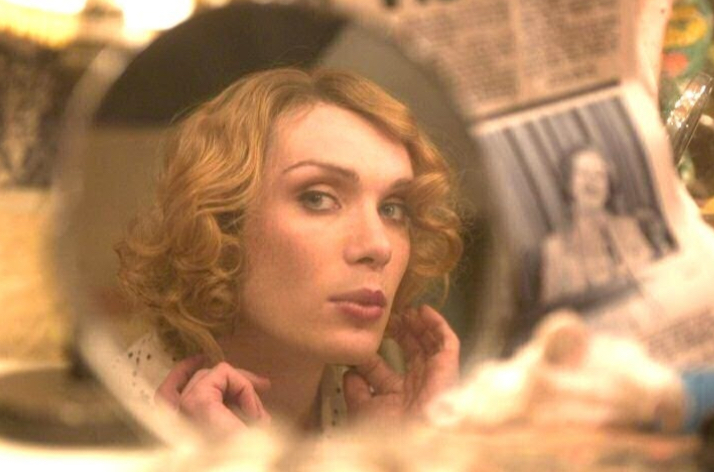
Cillian pushed the limits of his artistic craft even further in Breakfast on Pluto (2005), where he plays a transgender woman who leaves her small Irish town to London in hopes of finding her estranged mother. Patrick, otherwise known as ‘Kitten,’ is an eccentric, versatile character full of life and playfulness. She’s constantly pushing against societal expectations while staying true to herself, even in a climate that isn’t terribly accepting of transgenders. She gets into all sorts of trouble; from disrupting class to getting mixed up with the IRS, Kitten never has a dull moment in her journey to self-discovery and finding her real family. Murphy’s portrayal never feels exploitative or offensive. He fully dedicates himself to Kitten’s quirks, embracing her whimsy and essence without overacting or poking fun at the transgender community. In a 2005 interview with Time Out New York, Murphy discusses his process of preparing for the role: he sought out a transgender woman who dressed him up and took him to clubs. “What I noticed about all these transvestites I went out with is that they’re so quick and witty because they spend their whole life having insults thrown at them,” Murphy tells interviewer Anthony Kaufman. “They can be as bitchy as fuck, but it’s a total defense mechanism. Kitten has that too, because the character has been hurt so much and has built up this shell.” Instead, his work demonstrates Kitty as a fully developed character with dreams and aspirations. She finds joy even in discrimination, and her carefree nature makes her an extremely likable protagonist. Murphy’s performance also includes a lot of physicality, especially in scenes of Kitten dancing or flirting with other characters. The sensual nature of the protagonist is heightened by these mannerisms, committing Cillian further to the role while also making Kitten a well-rounded character on the screen. She’s fun to watch, and she is portrayed with dignity and respect.
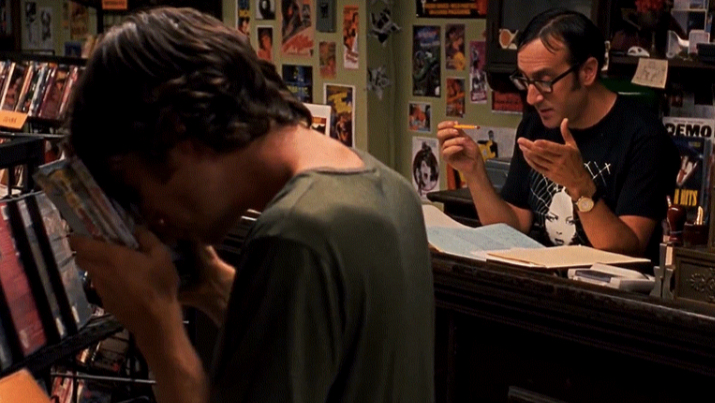
Dipping into the comedy genre is Cillian’s portrayal of Neil from Watching the Detectives (2007), a rom-com movie about a video store owner who finds himself entangled in a life of crime after going out with the quirky, mischievous Violet (Lucy Liu). Violet’s spirit compliments Neil’s need for excitement; at the start of the film, he asks his coworker “Where’s the adventure?” while signing for a package. Neil ends up signing the package Neil Adventure Adventure, a playful way of establishing his desire for experiences. Violet is the spark he needs, pushing him in unconventional ways with a fake police-chase and staged club scenes. The actors have a unique chemistry; their gripes with one other soon turn into their thrills. The story considers the intersections between the bored persona of a stuck-up film snob with a carefree spirit with a knack for trouble. It’s a charming film, and it’s refreshing to see actors who have mastered serious roles like Murphy take on such an embodiment of fun. He really tunes into the exaggerated emotions of a dramatic movie buff while also complimenting Violet’s raw, energetic persona. Murphy plays the stuck-up cinephile while being the effortlessly cool rockstar at the club. The performance is nothing revolutionary, but it demonstrates Murphy’s artistic range in being able to dip into comedy while still maintaining an exceptional portfolio. Comedy shows range. Comedy shows courage for building a reputation beyond dramas and thrillers. It’s a bright dot in a cosmic sea of success, and it only works to sharpen his resume even more. Jay Weissberg at Variety deems the “versatile Murphy” perfecting the accent and physical mannerisms of “an average, likable Joe with a movie fixation.”

Murphy’s performance in the 2017 drama The Party is nothing short of the superb work he’s done. In fact, the film’s small, claustrophobic space works to enhance the absolute horrid day Tom, Murphy’s character, is enduring. The Party follows the story of Janet (Kristin Scott Thomas) hosting a party in her home after being anointed to a prestigious government position. Among the quirky cast is Tom, a jittery, anxious finance employee, who upon arriving at Janet’s house locks himself in the bathroom and snorts a line of cocaine before examining the handgun he brought with him. Right away, Murphy treads the line between coked-up anxiety through shaky hands and wide eyes, while trying to regain composure and put on a somewhat together visage for the other party guests. His opening scene allows the film to tether on absurdism, which works for the manic persona Tom is trying to cover up. Cillian seems to perform almost theatrically; trying to amp himself up to kill Janet’s husband Bill (Timothy Spall), whom Tom caught cheating with his wife, while also riding on the insane cocaine he just snorted. The Party itself feels like a play, with the character’s lives intertwining at a singular event, where all truths come out and relationships fall apart. Tom certainly doesn’t hold back from the truth; after Bill accuses Tom of stealing from “worker’s hard earned paycheck funds,” Murphy doesn’t hold back any exasperation: “Stolen? From the mouth of the man who stole my wife!” It’s fascinating the way Murphy attempts to wield both personalities, letting Tom’s crippled stress and frustrations seep through as the movie’s tensions escalate. It’s another excellent performance that considers the dynamics of human nature while also playing into drug-induced anxieties.

Cillian has had his fair share of war movie roles: from a 1920s Irish Republic soldier in The Wind that Shakes the Barley (2006) to a 1940s Czech soldier in Arthropod (2016), Murphy’s physical understanding of the emotional weight that victims of war often drown in is best portrayed in his performance as the Shivering Soldier in Dunkirk (2017). This isn’t to discredit the tremendous work he did on the other films; but the Shivering Soldier is a full physical and mental dedication to a soldier’s reaction to trauma and survival in a time of unimaginable violence. Speaking with Dan Brightmore at NME, Cillian claims that the character is “representative of something experienced by thousands of soldiers, which is the profound emotional and psychological toll that war can have.” He does this through solitude: his performance is quiet. Unlike The Party, where his movements are theatrical and encompassing, the Soldier’s grief is still, felt in the beats of silence the movie finds comfort in using. The character is rescued by a civilian sailor and his son. Murphy considers the mannerisms of a shell-shocked soldier through empty glances, a collapsed posture, and an emotional lash out after realizing the boat is going to Dunkirk to rescue more soldiers. “I’m not going back,” is one of his only lines, laced with desperation and fear; for going back to Dunkirk is going back to the brutal warfare he only barely made it out of. While the role is a minor character, Murphy approaches the Shivering Soldier as he does with every other character he’s played; with conviction and passion, a nuanced understanding of the story, and a commitment to every single thing they’ve ever felt.
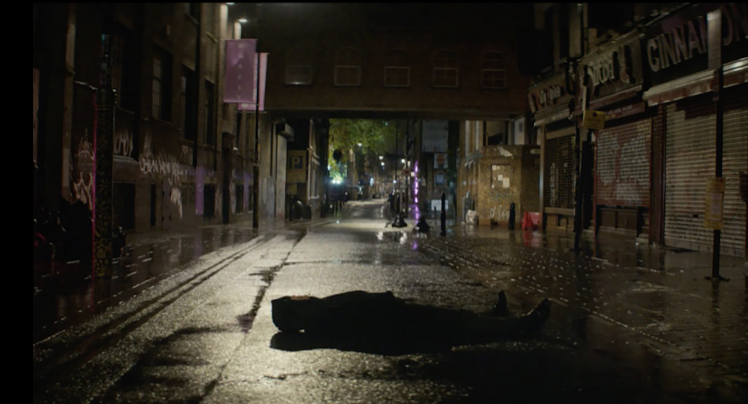
Cillian Murphy’s range has no bounds. The genuine love he has for cinema and for his craft can be felt with every moment of screen time he takes up. This love stems beyond his work done in feature films, for the Irish short All This Unreal Time (2021) is the perfect demonstration of just how much Murphy appreciates the art of cinema. It’s always endearing when critically acclaimed and successful actors take on small scale arthouse projects just because they can. All of This Unreal Time is the simple story of a man walking through the quiet streets of an Irish city from night to day while exploring his failures as a human being. Still, beautiful shots of Murphy journeying through empty spaces are accompanied by a poetic-like monologue that explores the undertones of human sadness, regret, and the foundation of an attempt to try again. It’s a devastatingly lonely piece. Nothing insane or dramatic occurs. There aren’t drugs or mischievous girlfriends. There’s no war, except for the internal war between man and his wrongdoings. No obsession, no insanity; none of the emotions and expressions Murphy has masterfully portrayed. All of This Unreal Time is a raw, unforgiving performance that accepts human nature in all of its dark silences. The Guardianpraised Murphy for his “wide-eyed despair” while The New York Times deemed him the “strongest performance piece” at the Manchester International Festival. It’s a role so surface-level simple that it’s nearly impossible to portray without feeling pretentious. Perhaps it’s the nature of Cillian Murphy as a human, and as an artist, that makes his work not only in this short, but in everything he’s ever been in, feel genuine and authentic, nuanced and real.